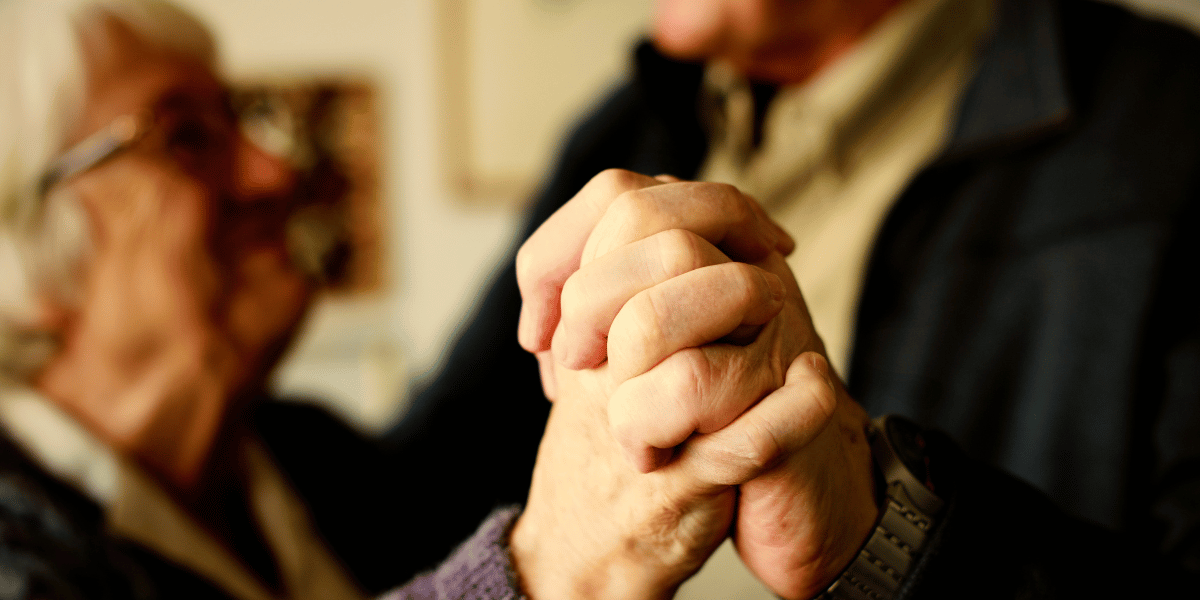HOPE at HOME
HOPE at Home: Compassionate Hospice Care When and Where It Matters Most. We greet you at your front door. At HOPE...
3 min read
HOPE Healthcare and Hospice
Dec 28, 2022 12:02:24 PM

"Hospice" and "Palliative Care" are two types of care that both offer relief and support to patients with serious illnesses. They also address patients' and their families' emotional, social, and spiritual needs. All hospice care is considered palliative care for people in the final stages of life. However, not all palliative care is considered hospice care. The difference is whether the patient is terminal or on a curative track. Keep reading to learn more about these differences.
Hospice and palliative care both focus on relieving symptoms and improving the quality of life for those with serious illnesses, while hospice care is specifically for those nearing the end of life. Let's take a deeper look into the specifics of both types of care.
Hospice care focuses on providing comfort and support to terminally ill patients and their families rather than curative treatment. Hospice care aims to help patients live their remaining days with as much dignity and quality of life as possible.
Hospice care benefits patients with a terminal illness whose doctor believes they have a life expectancy of six months or less if their illness runs its normal course without curative treatment. Hospice care is not only for cancer patients; it can also benefit patients with other life-limiting illnesses, such as Heart Disease, Lung Disease, Alzheimer's and other dementias, ALS, Parkinson's, and many other diseases.
Hospice care is also beneficial for caregivers, as it can provide resources to help prevent caregiver fatigue. In addition, the entire family often receives support and counseling from hospice staff. As a result of these services, hospice care can benefit patients, their caregivers, and the whole family.
Patients who receive hospice care have access to a team of healthcare professionals, including doctors, nurses, social workers, chaplains, and volunteers. This team provides medical care and emotional support to help patients and their families prepare for and cope with the end of life, regardless of wherever they may reside.
Hospice services are available in various settings, including hospitals, nursing homes, and the patient's home. Ultimately, location is determined based on the patient's needed care and the caregiver's preference.
In the United States, Medicare, Medicaid, The Veteran's Health Administration, and Private Insurance cover hospice care in most cases.
Medicare provides hospice care coverage for patients with a terminal illness and a life expectancy of six months or less if their illness runs its normal course. Medicaid also covers hospice care for eligible patients. The VA works closely with hospice companies to ensure that veterans receive care.
Private insurance policies vary, but many will cover at least some of the costs associated with hospice care. Patients who do not have insurance coverage may still be able to receive hospice care through HOPE Healthcare and Hospice. Once we deem a patient eligible for our services, there is zero out-of-pocket financial responsibility; there is never a bill from HOPE Healthcare and hospice to the patient and/or the family.
Palliative care is specialized medical care for people with serious illnesses like cancer or kidney failure. Patients in palliative care may receive medical care for their symptoms, or palliative care, along with treatment intended to cure their serious illness. Palliative care enhances a current care plan by focusing on the quality of life for the patient and their family.
Palliative care is a resource for anyone with serious illnesses like heart failure, chronic obstructive pulmonary disease, cancer, dementia, Parkinson's disease, and many others. Palliative care can be helpful at any stage of illness but is most beneficial early in the disease process.
In addition to improving quality of life and helping with symptoms, palliative care can help patients understand their choices for medical treatment. The organized services available through palliative care may be helpful to any older person having a lot of general discomforts and disabilities very late in life.
In hospitals, nursing homes, outpatient palliative care clinics, other specialized clinics, or in a home setting, you can receive palliative care. Medicare, Medicaid, and insurance policies may cover palliative care. Veterans may be eligible for palliative care through the Department of Veterans Affairs. Visit the National Hospice and Palliative Care Organization website to find palliative care near you.
There are many ways to finance palliative care—some private insurance companies offer coverage for palliative care. Medicare, the government-funded health insurance program for people over 65, covers palliative care for people with serious illnesses. Medicaid, the government-funded health insurance program for low-income Americans, also sometimes covers palliative care. In other cases, people may pay for palliative care out of their pockets.
If you or someone you love is facing a serious illness, hospice or palliative care can be essential to managing the condition and providing peace of mind during a difficult time.
Which is the right choice for you and your family? Let us help. Our team of professionals can answer your questions and ensure your loved one is cared for throughout their illness.
At HOPE Healthcare and Hospice, we are here to support the community of Acadiana. Please contact us for a free consultation to learn more about Hospice care.

HOPE at Home: Compassionate Hospice Care When and Where It Matters Most. We greet you at your front door. At HOPE...

Navigating the Five Stages of Grief Losing a loved one is a deeply personal journey, and understanding the five stages of grief—denial, anger,...

At HOPE Healthcare and Hospice, we recognize the powerful and positive effects music can have on hospice patients and families during difficult...